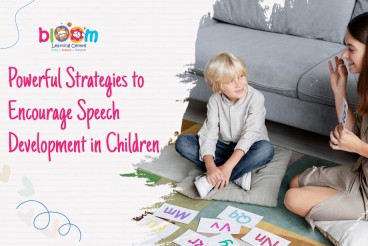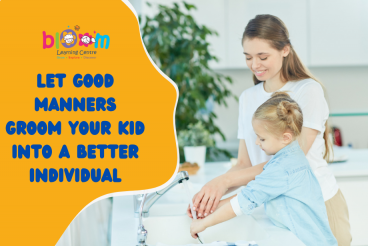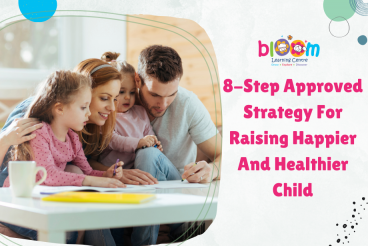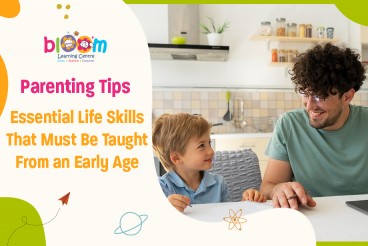

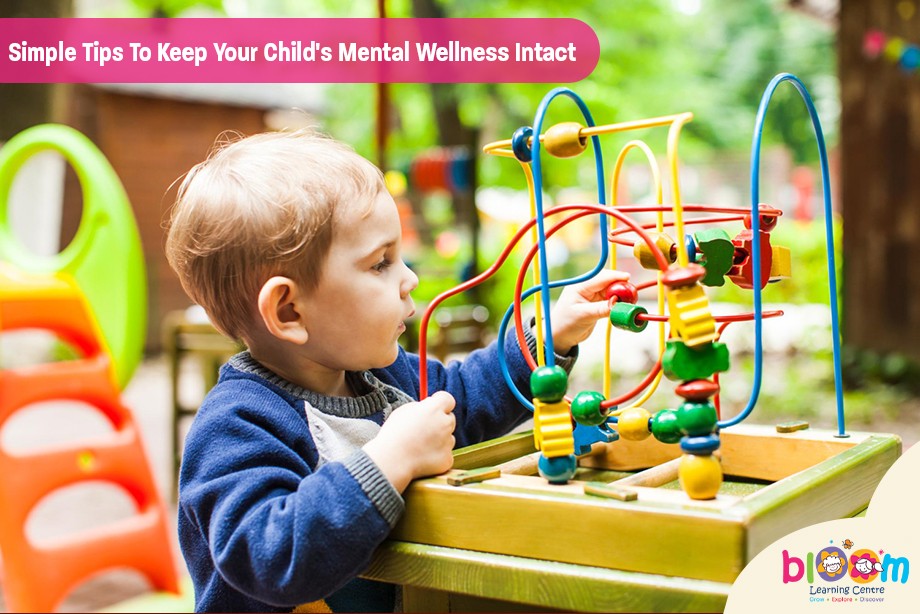
In the rapidly evolving digital landscape, every parent must prioritize their children's mental well-being. While we take pride in our children's academic and extracurricular successes, it is crucial to recognize that their emotional and psychological health constitutes the cornerstone of a fulfilling, healthy, and balanced life.
Should this information cause you discomfort, we are pleased to provide some reassuring news. In addition to various other activities, supporting your child's mental well-being is not as complex or daunting as it may appear. It merely requires integrating a few straightforward strategies into your daily routine, thereby fostering a nurturing environment that promotes emotional resilience, bolsters confidence, and ensures excellence across all facets of life.
If you are eager and excited to learn the process, here's how to get started.
When your child is battling with stress, the best option you have is to offer him stress relief through exercise. With exercise comes movement, which isn't limited to just the physical body but goes beyond to calm his mind and soothe the nervous system.
Parents can make yoga, walking, swimming, or even gentle body taps a routine. These activities can significantly reduce stress in your child and keep his energy levels optimum. Scientific research has proven that these practices if done regularly, can activate the child's mind-body connection. They additionally promote relaxation and grounding, which are necessary for the child to get acclimatized to his surroundings.
For instance, a simple walk in the neighborhood park or a swim at the local pool will free your child of his pent-up tension and regain emotional balance. The next time your child feels overwhelmed, become his buddy by pairing up for an activity. You will be amused to see how your kid becomes the happiest human on this earth while you share quality time and model healthy coping strategies.
The benefits of physical activity are worth considering as they extend beyond offering stress relief. Regular movement improves blood circulation, enhances focus, improves mood, and builds resilience and immunity against future ailments and airborne infections. Parents can switch to peer-pairing strategies by being involved in their kids' daily activities. Peer-pairing fosters a sense of support and prepares them for teamwork and group activities. Physical activities, when performed in pairs, offer him freedom from isolation during challenging times.
Short workouts together or movement-based fun family games are great examples of peer-pairing activities that are energizing and emotionally refreshing. Converting shared physical activity into an enjoyable experience can keep boredom at bay. Build a strong bond with your kid and boost his mental wellness to create a win-win situation for the family.
Unlock the wonderful benefits of journaling for mental health by encouraging your child to express their feelings through writing. Emotional journaling is not only straightforward but also a fantastic way for them to process and understand their emotions, especially during tougher moments. When they put pen to paper, they can uncover what they’re feeling, notice the physical sensations connected to those emotions, and identify possible triggers.
These reflective practices promote emotional clarity and provide a safe space for self-expression. Over time, this habit can help your child untangle overwhelming thoughts and create a calmer, more balanced mind.
Incorporating journaling into your daily routine can be a wonderful stress management tool. Encourage your child to turn it into a cozy nightly ritual where he can write down his feelings before going to bed. This simple yet effective practice helps clear their minds, paving the way for better sleep. Journaling is a lovely opportunity to let go of the day’s worries, focus on positive thoughts, and set sweet intentions for tomorrow.
By fostering this habit, you’ll equip your child with a lifelong tool for navigating emotions and maintaining mental wellness with clarity and confidence.
Negative thinking can sometimes feel a bit overwhelming, leading to a cycle that’s hard to escape. However, with some thoughtful, positive thinking strategies, your child can learn to interrupt these patterns and take charge of their mindset gently. A simple but effective approach is to help them question the validity of their thoughts. Encourage them to take a moment and ask, “Is this really true?”
This small but impactful step helps them challenge harmful assumptions and put their thoughts into perspective. They begin to identify irrational beliefs and replace them with more constructive and empowering ones, paving the way for a brighter outlook on life.
This practice also plays a crucial role in cognitive distortion management. It allows your child to recognize and correct unhelpful thought patterns, such as catastrophizing or self-doubt. With regular use, it becomes a valuable tool for overcoming negative thoughts and building emotional resilience.
For example, when kids encounter a tough situation, they might first think, “I can’t do this.” However, by gently questioning that thought, they can shift it to, “I’ve tackled challenges before; I can take this one on, too.” Encouraging your child to explore their thoughts with curiosity and reason helps boost their mental well-being and gives them valuable skills for handling life’s ups and downs in the future.
In today’s world filled with digital screens, taking a little break from our devices creates a wonderful opportunity to reset our minds. The digital detox benefits are truly amazing! It goes without saying that both kids and their parents get an option to recharge and regain their focus and cool. Even a brief time away from social media can do wonders by lowering stress levels and boosting our concentration.
For families with little wizards, a daily digital detox can become a cherished ritual. It allows them to break free from the virtual world and reconnect with individuals within the family, offering the necessary emotional support to each other. Schedule a time to power down your devices. Kids can join their parents in creating space for meaningful, screen-free interactions that not only nurture emotional well-being but provide a platform to understand each other.
Immersing yourself in nature is the best screen-free activity for any family to try during a digital detox period. Take your kids along for a walk in the park, tend to a garden, or simply watch the sunset. These moments have a mesmerizing effect and provide a refreshing change from the constant buzz of technology to a peaceful, calm, digital-free life. The connection between nature and mental wellness is well-documented. Spending time outdoors helps lower stress levels, elevates mood, and fosters a sense of tranquility.
Incorporating these straightforward yet meaningful habits into your daily life not only cuts down screen time but also fosters enduring memories and promotes your child’s comprehensive mental well-being with care and mindfulness.
Related Blog: Balancing Screen Time Minimizing Smartphone Risks For Kids
Relationships with meaning help your child become creative in the true sense, further strengthening his emotional health. The benefits of relationship building aren’t limited to companionship. They offer essential emotional support, help ease feelings of loneliness, and give a vital boost to his overall mood. Taking the time to enjoy quality moments with loved ones—through shared meals, heartfelt conversations, or fun activities—not only strengthens our bonds but also creates a lovely sense of belonging. The right kind of relationship creates an aura of powerful bonding.
These connections serve as a safety net during challenging times. They make your child feel valued and supported by laying the foundation for their long-term emotional resilience and happiness.
At the same time, it warmly encourages creative stress relief as a wonderful tool for self-expression and relaxation. Activities like painting, journaling, or playing a musical instrument not only offer a joyful outlet for emotions but also nurture a sense of achievement. These pursuits are not just enjoyable and engaging; they also help to channel energy away from stressors and into positive creation. Creative outlets play a vital role in emotional well-being strategies, inviting your child to explore their inner world, develop new skills, and build their confidence.
By cultivating relationships and creativity, you will equip them with a balanced approach to mental wellness that supports their social and individual needs.
Integrating these five simple tips into your child’s daily routine can be a wonderful way to support their mental wellness and guide them on their journey toward growth and success. Just a few small, thoughtful changes—like encouraging creative activities, embracing some fun physical exercise, or building strong, meaningful relationships—can truly make a big difference in their emotional resilience and overall happiness. By starting today, you’re not just helping your child cope with stress and challenges; you’re also giving them valuable tools to thrive throughout their life.
This is just a gentle reminder that the journey to mental wellness is truly a collection of small steps. Every positive habit you nurture together helps build a stronger foundation for the future. With your supportive and caring guidance, your child will feel more balanced and grounded while gaining the confidence to tackle life’s ups and downs. Together, you can create a warm environment that prioritizes their emotional well-being, helping them grow into their fullest potential—happy, healthy, and excited for success!
At Bloom Learning Centre, consistent self-care is the foundation of personal growth and lifelong success. Our mission is to empower individuals—especially young learners—by fostering a nurturing environment where they can embrace their unique journeys with self-awareness, compassion, and resilience. Through carefully designed programs, we focus on integrating self-care for personal growth into daily routines, encouraging both children and their families to prioritize emotional well-being alongside academic and personal achievements.
Established in the vibrant heart of the Cayman Islands, our Preschool in Cayman embraces a warm and holistic approach to early education. We beautifully blend structured learning with a heartfelt focus on mindfulness, creativity, and self-reflection. Our engaging curriculum is filled with mindfulness and gratitude practices, empowering children to develop emotional intelligence, ease stress, and cultivate a sunny outlook on life.
Through goal-setting and reflective activities, we spark curiosity and inspire young minds to grow with purpose and confidence. At Bloom Learning Centre, we’re more than just educators. We are dedicated to nurturing future leaders who thrive in harmony, compassion, and gratitude.
